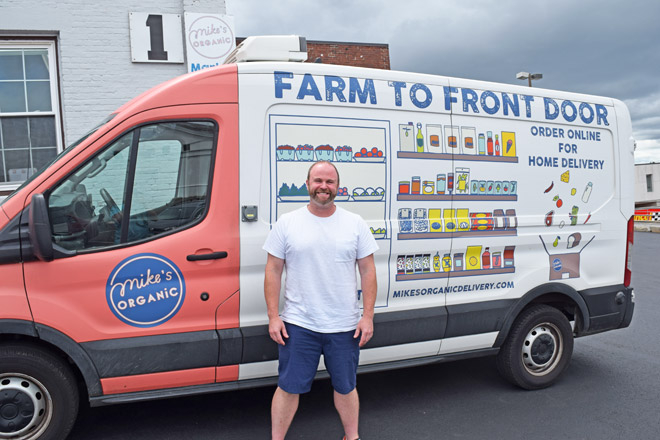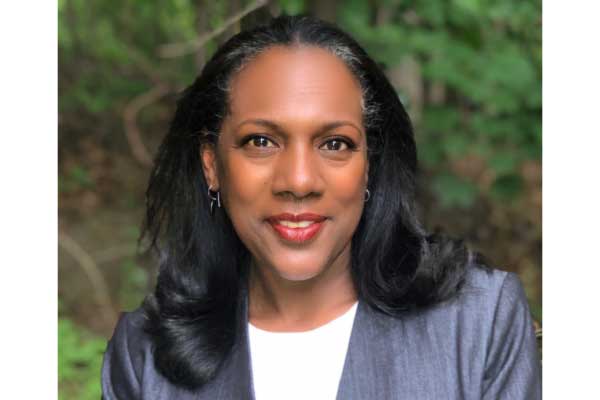In July 2008, Mike Geller was working at a photography safari camp in Botswana”™s Kalahari Desert ”” the Greenwich native had walked away from a career in advertising and celebrity event marketing and was pursuing an extreme change of scenery while considering the next chapter in his life.
As luck would have it, inspiration came when and where he least expected ”” inside a Botswanan supermarket.
“I went to the supermarket and saw that all the food there was better than here,” he said. “I couldn”™t understand why.”

Geller returned to the U.S. and took a job at the Stone Barns Center at Blue Hill in Pocantico Hills, where he started to learn about food sourcing. He realized that local sourcing was the secret to the freshness in the Botswanan supermarkets ”” unlike the American stores that deal with a lengthy supply chain, the African grocers sourced their inventory locally, thus ensuring a greater degree of freshness in the food.
For Geller, this realization was his equivalent of an a-ha moment.
“I wanted to start a business that would directly bridge the gap between consumers and small local farmers,” he recalled.
In 2009, Geller began Mike”™s Organic from his parents”™ Greenwich home, with the mission of offering a home delivery service of organic grocery items sourced from regional farms and vendors. However, Geller got off to a rocky start when he tried to build relationships with the area”™s farms.
“When I first started my organic, I thought, ”˜Well, this is kind of easy ”” I want to buy things and farmers grow things to sell,” he said. “I started calling up farmers and the first five or six farmers said ”˜no”™ to me, and I couldn”™t understand why. The reason was because farmers do not just throw a bunch of beet seeds out in the field and say, ”˜Well, I hope they grow ”” and if they do, we”™ll see how many we have.”™ They want to know where their food is going.”
After securing relations with farmers willing to take a chance on Geller”™s startup, he began building his business in the Greenwich area, averaging nine deliveries a week that he made using his Nissan Pathfinder.
Twelve years later, Geller has a 15-person workforce, averages 500 deliveries a week, operates a warehouse and adjacent retail store in Stamford and is planning to open a grocery store in Greenwich in 2022. His home-focused service has expanded to include schools, restaurants and corporate accounts, with customers ordering their groceries through Geller”™s website.
Ninety percent of the produce sold through his service is sourced from small organic farms within an 80-mile radius of his Stamford operations, and some merchandise comes from outside organic farms in California. He also has a contract with an American Indian tribe in the Pacific Northwest that provides wild-caught salmon.
Geller acknowledged the complaints that many consumers are now making about the rising cost of food, but he pointed out this is a systemic problem that predated the current inflationary uptick.
“Small organic farmers are not subsidized,” he explained. “It is inherently more expensive to grow food the way that they”™re doing it ”” a cow takes 18 months to be raised with them and 12 months to be raised in a commercial setting, so the organic farmers are paying for those six months, right?
“We do this unusual thing in this country,” he said. “We go to a grocery store, we see a pound of ground beef for $1.99 and we say that”™s a great deal. But if you went to a Mercedes dealership and saw a car for $1,000, your first question might be ”˜What”™s wrong with the car?”™ We don”™t prioritize food financially.”
Geller said the mission of his company is “to connect people to their food, explain the value of the food to them, why it”™s important to support that system and then they should make whatever decisions work for them. Financially, morally, convenience-wise, eating is a personal choice as voting. I need to give that farmer the price that they need for their dozen eggs or their pound of tomatoes, because without them there is no Mike”™s Organic. So, our pricing is really fair and comparable to what you would see for the products that are out there.”
Geller confided that his ability to keep his business operational during the Covid-19 pandemic proved to be an economic lifesaver for many of his vendors.
“I had over 30 farmers last year tell me they would have lost their farm without Mike”™s Organic Delivery,” he said. “Restaurants closed, and if you”™re a farmer raising chickens and selling them to a restaurant and, overnight, they say, ”˜We”™re closed for the foreseeable future,”™ what are you doing with your 80 chickens a week? We really stepped in for a lot of these farms as a lifeline.”
Today, Geller believes that he truly answered the question that puzzled him during his Botswana residency.
“In 12 years of doing this, the way I look at food it has changed so dramatically,” he said. “It is not this inanimate object wrapped in plastic that you buy at the store. There”™s a story behind every piece of food and person behind that, as well. By doing what we”™ve done, it”™s enabled us to hear and learn those stories and share them with people. I always think of us as an ambassador for the farmers.”



















